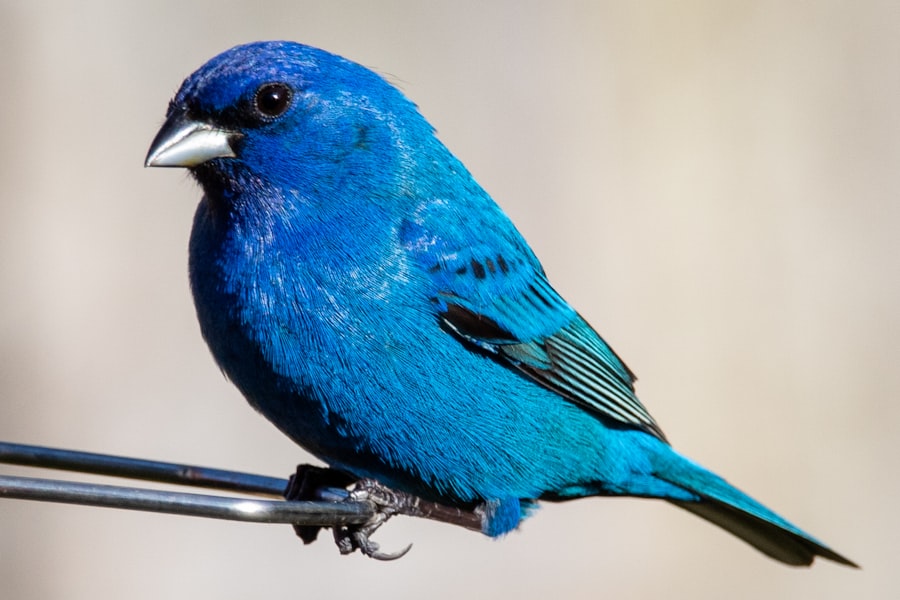Keeping chickens offers numerous advantages for individuals and households. One primary benefit is the consistent supply of fresh, organic eggs, which can lead to cost savings and provide a healthier alternative to commercially produced eggs. For those who choose to raise chickens for meat, it also offers a source of high-quality poultry.
Chickens serve as effective pest control agents in gardens, consuming slugs, snails, and insects, thereby reducing the need for chemical pesticides. Their manure is a nutrient-rich fertilizer that can enhance soil quality and promote plant growth, decreasing reliance on synthetic fertilizers. Raising chickens can be an educational experience for both children and adults, fostering an understanding of animal care, responsibility, and food production.
This practice can contribute to a more sustainable lifestyle, reducing dependence on store-bought products and promoting a closer connection to food sources. The benefits of keeping chickens extend to various aspects of life, including health, finances, and overall well-being. It offers a practical way to engage in sustainable living practices while providing tangible rewards in the form of fresh food and improved garden health.
Table of Contents
- 1 The Costs of Keeping Chickens
- 2 The Time and Effort Required for Keeping Chickens
- 3 The Health and Environmental Benefits of Keeping Chickens
- 4 The Potential Challenges of Keeping Chickens
- 5 The Rewards of Keeping Chickens
- 6 Is Keeping Chickens Right for You?
- 7 FAQs
- 7.1 What are the benefits of keeping chickens?
- 7.2 What are the costs associated with keeping chickens?
- 7.3 What are the legal considerations for keeping chickens?
- 7.4 What are the time and effort requirements for keeping chickens?
- 7.5 What are the potential challenges of keeping chickens?
- 7.6 What are the potential health risks of keeping chickens?
- 7.7 What are the environmental considerations of keeping chickens?
Key Takeaways
- Keeping chickens can provide a sustainable source of fresh eggs and meat for your family.
- Chickens can help reduce food waste by eating kitchen scraps and providing natural pest control in the garden.
- The initial costs of setting up a chicken coop and purchasing chickens can be significant, but the long-term savings on eggs and meat can make it cost-effective.
- Keeping chickens requires daily feeding, cleaning, and monitoring of their health, which can be time-consuming.
- Chickens can provide a natural source of fertilizer for your garden and help reduce your carbon footprint by reducing food waste.
The Costs of Keeping Chickens
Initial Investment
Setting up a suitable environment for your chickens requires an initial investment. This includes purchasing or building a secure and predator-proof enclosure, as well as providing nesting boxes, perches, and other essential equipment.
Ongoing Expenses
In addition to the initial investment, there are ongoing expenses to consider. You’ll need to purchase feed and bedding for your chickens on a regular basis, which can add up over time. Veterinary care is another potential expense, especially if your chickens become ill or injured.
Time and Effort
Keeping chickens also requires a commitment of time and effort. You’ll need to spend time each day caring for your chickens, including feeding them, collecting eggs, cleaning the coop, and ensuring they have access to fresh water and suitable living conditions. Ongoing maintenance costs for the coop and run, as well as potential expenses for replacing equipment or making repairs, should also be factored into your decision.
The Time and Effort Required for Keeping Chickens

Keeping chickens requires a significant investment of time and effort to ensure that they are healthy, happy, and productive. Firstly, you will need to spend time each day feeding your chickens and ensuring they have access to fresh water. This may involve filling feeders and waterers, as well as monitoring their consumption to ensure they are getting the nutrition they need.
Additionally, you will need to collect eggs regularly to prevent them from being damaged or attracting pests. Furthermore, maintaining a clean and sanitary living environment for your chickens is essential for their health and well-being. This means regularly cleaning the coop and run, removing soiled bedding, and ensuring that their living space is free from pests and parasites.
You may also need to provide enrichment activities for your chickens to keep them mentally stimulated and prevent boredom. Overall, keeping chickens requires a daily commitment of time and effort to ensure that they are well cared for and able to thrive in their environment.
The Health and Environmental Benefits of Keeping Chickens
Keeping chickens can have numerous health and environmental benefits for both you and your community. Firstly, having access to fresh eggs from your own flock means that you can enjoy a healthier and more sustainable source of protein. Eggs from free-range chickens are often higher in omega-3 fatty acids and vitamins compared to store-bought eggs, making them a nutritious addition to your diet.
Additionally, raising chickens in a natural environment can help reduce stress and promote mental well-being for both adults and children. Furthermore, keeping chickens can have positive environmental impacts. Chickens are excellent at reducing food waste by consuming kitchen scraps and leftovers that would otherwise end up in the landfill.
This can help reduce methane emissions from decomposing organic matter and minimize the environmental impact of food waste. Additionally, chickens produce nutrient-rich manure that can be used to fertilize gardens and promote healthy soil and plant growth. This reduces the need for synthetic fertilizers and helps support sustainable gardening practices.
Overall, keeping chickens can have significant health and environmental benefits that contribute to a more sustainable lifestyle.
The Potential Challenges of Keeping Chickens
While there are many benefits to keeping chickens, it’s important to be aware of the potential challenges that come with raising poultry. Firstly, predators can pose a significant threat to your flock, including foxes, raccoons, hawks, and even neighborhood dogs. It’s essential to invest in secure fencing and predator-proofing measures to protect your chickens from harm.
Additionally, chickens are susceptible to various diseases and parasites that can impact their health and productivity. Regular monitoring and preventative care are essential to minimize the risk of illness in your flock. Furthermore, keeping chickens requires a commitment of time and effort to ensure that they are well cared for.
This includes daily feeding and watering, as well as regular cleaning and maintenance of their living environment. Additionally, extreme weather conditions can pose challenges for chicken keepers, including providing adequate shelter during hot summers or protecting them from cold temperatures in the winter. It’s important to be prepared for these challenges and have a plan in place to ensure the well-being of your flock.
Overall, while there are potential challenges associated with keeping chickens, being aware of these factors can help you make informed decisions about whether it’s the right choice for you.
The Rewards of Keeping Chickens

The Joy of Self-Sufficiency
Keeping chickens can be incredibly rewarding in many ways. Firstly, having a flock of chickens provides a sense of self-sufficiency and connection to your food source. Knowing where your eggs come from and how your chickens are raised can provide peace of mind and a greater appreciation for the food you consume.
Therapeutic and Educational Benefits
Interacting with chickens can be therapeutic and enjoyable, providing a source of entertainment and companionship. Furthermore, raising chickens can be a great educational experience for children and adults alike. Learning about animal care, responsibility, and sustainable living practices can be valuable life lessons that extend beyond the chicken coop.
Fresh and Nutritious Eggs
Having access to fresh eggs from your own flock means that you can enjoy high-quality, nutritious eggs that contribute to a healthy diet. Overall, the rewards of keeping chickens extend beyond the practical benefits and can enrich your life in meaningful ways.
Is Keeping Chickens Right for You?
Deciding whether keeping chickens is right for you depends on various factors including your lifestyle, resources, and commitment level. If you have the time and resources to invest in caring for a flock of chickens on a daily basis, then it may be a rewarding experience for you. Additionally, if you value having access to fresh eggs from ethically raised hens and are interested in sustainable living practices, then keeping chickens could align with your values.
However, if you have limited time or resources to dedicate to caring for chickens or live in an area with restrictions on poultry keeping, then it may not be the right choice for you at this time. It’s important to consider the potential challenges associated with raising chickens as well as the costs involved before making a decision. Ultimately, keeping chickens is a personal choice that requires careful consideration of your lifestyle and priorities.
If you are willing to invest the time and effort required to care for a flock of chickens and appreciate the rewards that come with it, then it may be a fulfilling endeavor for you.
If you’re considering keeping chickens, you may also want to think about what kind of coop is best for them. Poultry Wizard has a helpful article on what kind of coop is best for chickens that can provide valuable information on creating a suitable living space for your feathered friends.
FAQs
What are the benefits of keeping chickens?
Keeping chickens can provide a sustainable source of fresh eggs, natural pest control in the garden, and a source of organic fertilizer for plants.
What are the costs associated with keeping chickens?
The costs of keeping chickens include initial setup (coop, feeders, waterers), ongoing feed and bedding expenses, and potential veterinary care.
What are the legal considerations for keeping chickens?
Local regulations and zoning laws may dictate the number of chickens allowed, coop requirements, and distance from neighboring properties. It’s important to research and comply with these regulations.
What are the time and effort requirements for keeping chickens?
Chickens require daily care, including feeding, watering, and cleaning the coop. Additionally, they may need regular health checks and maintenance of their living space.
What are the potential challenges of keeping chickens?
Chickens can attract predators, such as raccoons and foxes, and may require protection measures. Additionally, they can be susceptible to diseases and parasites that require monitoring and treatment.
What are the potential health risks of keeping chickens?
Chickens can carry bacteria such as Salmonella, so proper hygiene and handling practices are important to minimize the risk of illness.
What are the environmental considerations of keeping chickens?
Chickens can contribute to sustainable living by providing natural fertilizer for gardens and reducing food waste through composting kitchen scraps. However, their waste management and impact on local ecosystems should be considered.
Meet Walter, the feathered-friend fanatic of Florida! Nestled in the sunshine state, Walter struts through life with his feathered companions, clucking his way to happiness. With a coop that’s fancier than a five-star hotel, he’s the Don Juan of the chicken world. When he’s not teaching his hens to do the cha-cha, you’ll find him in a heated debate with his prized rooster, Sir Clucks-a-Lot. Walter’s poultry passion is no yolk; he’s the sunny-side-up guy you never knew you needed in your flock of friends!







